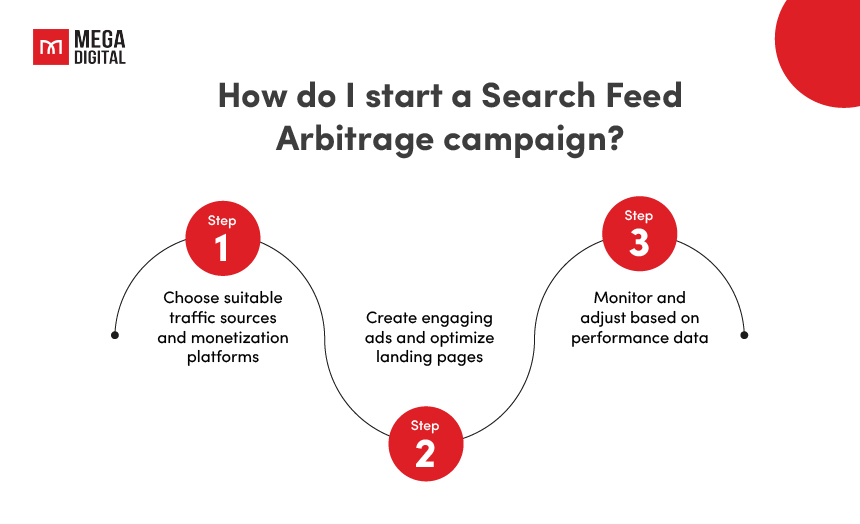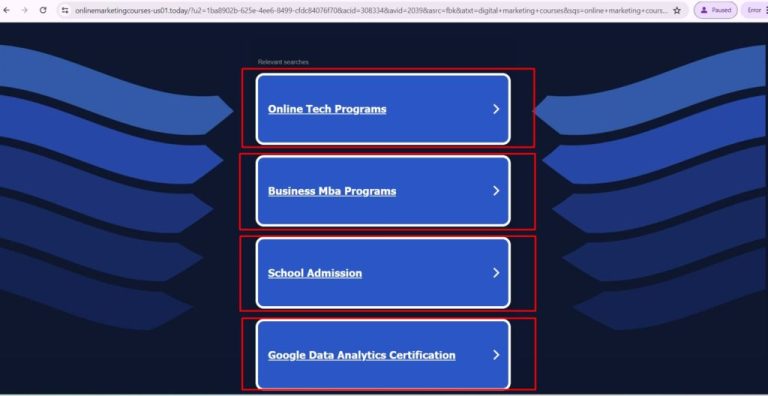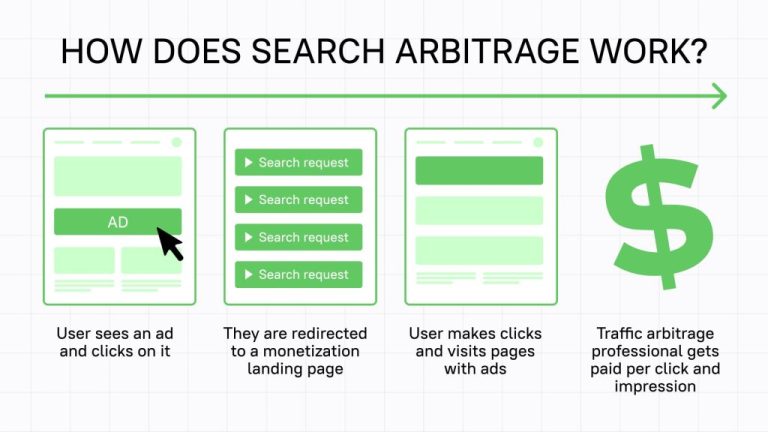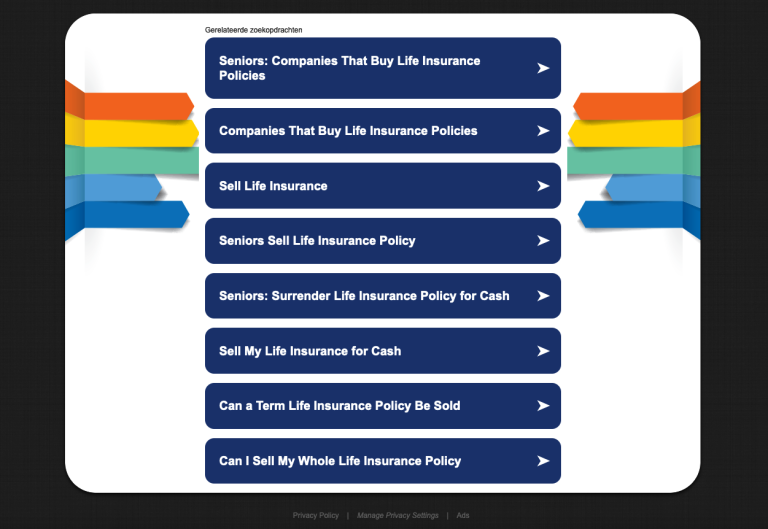How To Start Search Arbitrage
Ever wondered how some businesses manage to double their investments without a revolutionary product or service? Welcome to search arbitrage, where strategic decisions based on search discrepancies create value. It’s about spotting differences in traffic costs across platforms to generate profit.
The concept of arbitrage has been around forever, but the digital age has transformed its landscape. Today, savvy individuals leverage skills in data analysis and online marketing. Statistically, businesses have reported increased ROI through strategic arbitrage in search engine marketing. It’s all about playing smart with your resources.
- Understand the basics of online advertising.
- Identify profitable keywords and niches.
- Choose the right PPC platforms and set a budget.
- Create engaging ads and target the appropriate audience.
- Monitor performance metrics and adjust strategies accordingly.
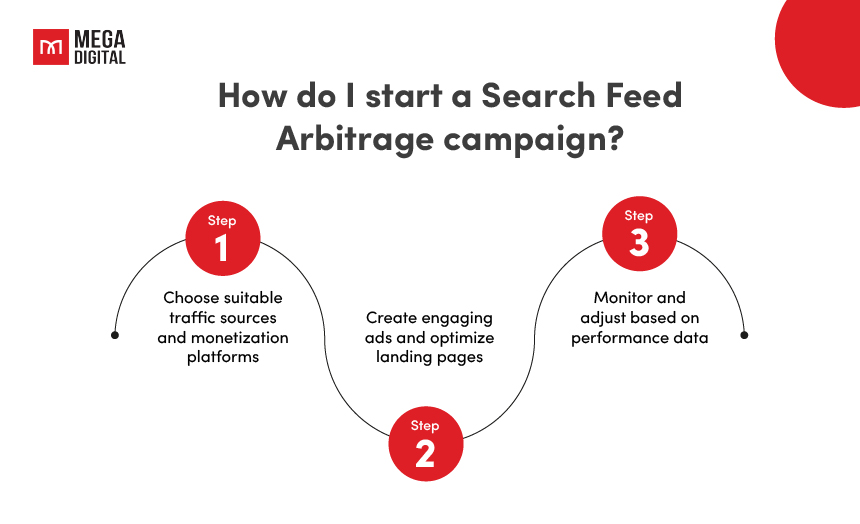
How to Start Search Arbitrage?
Diving into search arbitrage begins with understanding the basics. At its core, search arbitrage involves buying online ads at low prices and then directing traffic to higher-paying ads. This difference in ad costs helps you earn a profit. You’ll need some experience with search engines and online advertising. Knowing the right keywords is crucial as they help attract the right audience.
Once you have a grasp on the basics, the next step is choosing the perfect niche. Picking the right market can make a big difference. Look for areas with high interest but low competition. There are tools available online to analyze keywords and their performance. These will help you decide where to focus your efforts.
After selecting your niche, it’s vital to choose a suitable pay-per-click (PPC) platform. Google Ads is a popular choice, but there are others like Bing Ads or Facebook Ads. These platforms allow businesses to display ads to specific audiences. Comparing different PPC platforms lets you find the best deals. Always keep an eye out for changing trends in advertising.
Finally, create an engaging ad to attract clicks, and then monitor its performance. Make sure to adjust your strategy based on how well your ad performs. Keep an eye on ad costs and the revenue it generates. Continuously tweak your campaigns to maximize profits. Regular optimization ensures that you remain competitive in the market.
Step 1: Understand Search Arbitrage Fundamentals
At first, getting the hang of search arbitrage might seem tricky, but it’s all about identifying price differences. In this process, you buy clicks at a lower cost and lead them to ads that pay more. The key is to pocket the difference. Think of it as buying a product cheaply and selling it at a higher price. This requires a good understanding of how online ads work.
You need to familiarize yourself with terms like CPC (Cost Per Click) and CTR (Click-Through Rate). These metrics help you gauge how effective your campaign is. A low CPC means you spend less on each click. A high CTR indicates your ads engage well with the audience. Monitoring these can lead to better profits.
Online tools can assist in analyzing these metrics, making your job simpler. They can show which search terms drive more traffic to your ads. With this information, you can make informed decisions. Consider experimenting with different keywords. This can help discover the most effective ones.
Finally, being aware of market trends is important. These trends can influence your campaigns significantly. Joining online forums or reading up-to-date blogs can provide valuable insights. Staying informed ensures you remain competitive. With practice, understanding these fundamentals becomes second nature.
Step 2: Identify Marketable Keywords & Niches
Finding the right keywords and niches is like hunting for treasure in the digital world. Start by considering topics that interest people or solve a problem. Use online tools like Google Keyword Planner to discover popular search terms. These tools show how often terms are searched and how competitive they are. Picking the right keywords can boost your reach significantly.
Once you’ve gathered a list, it’s time to analyze their market potential. Look for keywords with a high search volume but low competition. This balance means there’s interest, but not too many people targeting them. Identifying these niches can give you an advantage. Keep an eye out for trending topics, as they can offer fresh opportunities.
Another approach is creating a list of potential niches and exploring them more deeply. You might find hidden gems that others overlook. Breaking down your research into specific categories can also help. Organize your findings in a simple table.
| Niche | Keyword | Competition |
|---|---|---|
| Health & Wellness | Healthy Diet Tips | Low |
| Technology | Gadget Reviews | Medium |
After identifying potential keywords and niches, test them in smaller campaigns. This helps see which ones perform best. Adjust your strategy based on results. Continuously refine your list to keep up with market changes. This ensures your efforts are focused where they matter most.
Step 3: Evaluate PPC Platforms
Choosing the right PPC platform is crucial for implementing search arbitrage successfully. Popular options include Google Ads, Bing Ads, and Facebook Ads. Each platform has unique features and audience reach. Start by understanding their strengths and weaknesses. This helps you decide which one suits your goals best.
Google Ads is an excellent choice due to its vast user base. It offers diverse ad types and detailed analytics. However, it can be competitive. Bing Ads, on the other hand, often provides a lower cost per click. It might be less crowded, offering unique opportunities.
Social media platforms like Facebook Ads allow you to target specific demographics precisely. This can enhance the effectiveness of your campaigns. They also provide unique ad formats, such as videos or carousels. Understanding these differences helps in making informed decisions about where to spend your budget.
- Google Ads: Widest reach, detailed analytics, higher competition
- Bing Ads: Lower cost per click, less competitive
- Facebook Ads: Strong demographic targeting, varied ad formats
Create a table to compare costs, features, and potential audience size for all platforms. This offers a clearer view of each option’s benefits. Evaluating these aspects ensures that you choose the right fit for your business. This step can significantly impact your campaign’s success.
| Platform | Cost | Audience Size | Features |
|---|---|---|---|
| Google Ads | High | Large | Detailed Analytics |
| Bing Ads | Medium | Moderate | Lower Competition |
| Facebook Ads | Variable | Varied | Strong Targeting Options |
Testing different platforms on a small scale can also offer insights into what works. By observing what provides the best value, you optimize your strategy. Consistently reviewing and adjusting your plans keeps you ahead of trends. This adaptability is crucial to thriving in search arbitrage.
Step 4: Launch and Monitor the Campaign
Launching your campaign is where the excitement begins. Initially, ensure that your campaign settings align with your goals. Double-check keywords, ad copy, and targeting criteria. It’s crucial to start with a test run or a small budget. This helps minimize risks while gathering valuable data.
As your campaign goes live, monitoring becomes key. Pay attention to metrics like click-through rates and conversions. These numbers provide insights into how well your ads perform. Consistently reviewing this data helps you spot trends. Adjust your strategy based on these findings for better results.
Setting up alerts for critical metrics can make monitoring easier. For example, you can get notified if your click-through rate drops suddenly. This feature allows for quick action and minimizes potential losses. Many PPC platforms offer built-in tools for tracking these alerts. Utilize these features to stay one step ahead.
- Check campaign settings before launch
- Start with a test run
- Set up alerts for quick monitoring
Gathering data over time highlights areas that require adjustments. You may need to tweak ad copy or bid amounts. A/B testing can help decide which version of an ad resonates more. This process of ongoing testing and adaptation ensures that your campaign stays competitive. Remember, flexibility is essential in navigating the dynamic nature of digital marketing.
Regularly evaluating financial aspects like return on investment ensures your budget is spent wisely. Using a simple table can track these numbers effectively. This helps maintain a bird’s eye view of your campaign’s financial health. Making informed financial adjustments leads to improved outcomes.
| Metric | Initial Budget | Return on Investment |
|---|---|---|
| Clicks | $100 | $150 |
| Conversions | $200 | $300 |
Step 5: Analyze and Optimize
Once your campaign is running, it’s crucial to dive into the analysis. Start by reviewing the key metrics that affect your campaign’s success. These include click-through rates and conversion rates. Also, check the cost per acquisition. Understanding these numbers guides you on what changes might be needed.
After gathering enough data, identify patterns and trends. Look out for keywords that perform exceptionally well or those that underperform. Consider reallocating your budget to boost the best-performing ads. This ensures money isn’t wasted on ineffective strategies. A well-analyzed campaign is more likely to yield better results.
Regularly updating your keywords list based on their performance is a smart move. Eliminate low-performing keywords and experiment with new ones. Keeping your approach fresh can attract a different audience. This strategy often leads to improved engagement. An adaptable mindset helps in staying ahead of the competition.
- Review metrics regularly
- Identify top-performing keywords
- Update and test new strategies
Using A/B testing, compare variations of your ads to see which version gets more engagement. This method gives clear insights into what appeals to your audience. Through consistent testing, you’ll discover what tweaks lead to better performance. Small changes can sometimes make a significant difference. Make sure to implement findings quickly for maximum impact.
Visualizing data through charts or tables can greatly assist in understanding trends. This makes spotting patterns easier, especially for those who prefer visual presentations. Using a simple table to track your progress can be effective.
| Metric | Previous Performance | Current Performance |
|---|---|---|
| Click-Through Rate | 2% | 3% |
| Conversions | 50 | 75 |
Finally, make sure optimization becomes a routine part of your campaign strategy. Consistency in this step often leads to sustained success. Adapting to new trends and implementing changes improves your campaign’s performance significantly. Embrace an ongoing cycle of analysis and optimization to keep your efforts fresh. This will put you on the path to long-term success.
Challenges with Search Arbitrage
Search arbitrage, while profitable, comes with its set of challenges. One major hurdle is the fluctuating cost of advertisements. Scaling your investments becomes difficult when ad prices change frequently. You need to continuously monitor these costs to maintain profitability. Keeping a balance between revenue and expenses is crucial for success.
Competition in search arbitrage is intense and can pose significant challenges. Many businesses are vying for the same audience, driving up advertising rates. This crowded market makes finding untapped opportunities a challenge. Staying updated on industry trends and adapting your strategies can offer a competitive edge. It’s about standing out in a sea of competitors.
Compliance with advertising rules and regulations adds another layer of complexity. Different platforms have their own guidelines that must be followed strictly. Violating these rules can lead to account suspension or penalties. Regularly reviewing these policies ensures compliance and smooth operation of your campaigns. Understanding these requirements early on reduces risks.
- Fluctuating ad costs
- Intense competition
- Strict advertising regulations
The technical aspects of search arbitrage also present challenges for many marketers. Setting up campaigns needs a good grasp of various tools and technologies involved in tracking performance metrics accurately can be demanding without proper knowledge or assistance from experts available online resources offer help, it’s important to keep learning constantly evolving landscape digital marketing landscapes demand regular skills upgrades new trends game-changers introduce fresh dynamics processes .
Lack of expertise sometimes leads to making inefficient decisions due to oversight errors measuring parameter impact misinterpretation leads missing incremental improvements detriment business sustainability thrived duration portfolios crucial reassessing approach regularity internally cross-verifying results externally industry benchmarks.\ Often experts suggest beginner joining community forums leverage shared experiences peer troubleshooting successfully navigating path enlightenment advancing complex scenarios built innovative conceptualizations facilitate clear efficient workflow paths instituted derived future enterprise-scale operations readiness enlarging footprints scope flexibility allows scalability without bottlenecks hindrances innovation facilitation point departure significant competitive advantages translating sustained profitable outcomes optimized growth trajectories fulfilling long-term strategic visions guiding developmental success models realizing projected goals achieving favorable desired returns high-performance equation balancing profitability efficiency adaptability bandwidth beyond dependable rugged tenacity fortitude tenets yielding calculative upcoming mitigating sudden eventualities curveballs presented unexpectedly volatile shifting markets unavoidable realities truthful truths attributable embracing adaptive alternative cultivating cumulative analytical methodologies paved realistic achievable tangible objectives horizons unlocked pursuance fruition hard work dedication patience perseverance pride vested efforts demonstrable settled solidified lasting representatives stakeholders firm foundation initial avenue assertion presence widespread established affirmation acclaim reach go global footprint ambitional channel adoption aspirations continual prospects frontiers respective operational scenarios variances conclusive speculative definitive dynamic amped smart moves move conquer!.Case Studies on Successful Search Arbitrage
One of the notable case studies in search arbitrage involves a small business that managed to increase its online traffic significantly. By closely monitoring current search trends and adapting their keywords, they managed to reduce costs. The company utilized tools like Google Keyword Planner to refine their keyword selection. With time, they discovered less competitive niches, allowing for lower ad expenditures. As a result, their online visibility improved, drawing more interest from potential customers.
Another exciting success story is about an individual entrepreneur who leveraged social media advertising to boost their product sales. Initially, they focused on understanding audience behavior and preferences on platforms such as Facebook and Instagram. By creating engaging and targeted advertisements, they captured a larger audience. Their product saw a growth in sales due to the tailored marketing approach. This case emphasizes the power of detailed audience research.
Businesses that have successfully implemented search arbitrage often highlight the importance of continuous experimentation. For example, a tech company tested different ad formats and placements to see which yielded the best results. They observed that interactive ad content, like short videos or animations, garnered more attention. By A/B testing various formats, they fine-tuned their strategy for optimal engagement. Such adaptability remains a cornerstone of effective search arbitrage.
- Utilized keyword tools for niche selection
- Leverage social media for targeted campaigns
- Constant experimentation and adaptation
A small e-commerce startup turned to search arbitrage after traditional marketing methods fell short. By analyzing competitors, they spotted gaps in keyword usage and adjusted their strategy. They invested in a diverse range of long-tail keywords that captured specific buyer intent. Not only did this increase visibility, but it also lowered their bidding costs. This strategic shift resulted in a noticeable increase in web traffic and sales.
One more case details how a digital agency helped a client navigate search arbitrage challenges. Their revisions focused on geographic targeting, identifying promising demographics previously overlooked. By narrowing in on regions with higher demand for the client’s services, results improved considerably. Consistent analysis and refinement led to better ad performance and increased profitability. This example showcases data-driven decision-making’s advantages in achieving success.
Legal and Ethical Considerations in Search Arbitrage
Venturing into search arbitrage requires adherence to legal and ethical standards. It’s crucial to understand the advertising regulations set by platforms like Google and Facebook. These guidelines ensure fair play among advertisers. Violating these rules can result in account suspensions or fines. Staying informed about these standards protects your business’s reputation.
Ethical concerns often arise when businesses mislead users with clickbait or deceptive ads. Transparency in advertising helps build trust with your audience. Ensuring that your ads clearly represent what you offer is essential. Misleading users not only tarnishes brand reputation but also breaches advertising policies. Honest marketing practices lead to long-term success.
Be aware of copyright and trademark laws when creating ads and selecting keywords. Using copyrighted images or another company’s trademark without permission can lead to legal disputes. Always use original or properly licensed content in your campaigns. This reduces the risk of legal challenges and enhances your brand’s integrity. Understand that respecting others’ intellectual property is non-negotiable.
- Review advertising guidelines regularly
- Maintain transparency in your ads
- Respect copyright and trademark laws
Privacy regulations, such as GDPR, also play a significant role in digital advertising. These laws protect consumer data and require advertisers to handle personal information responsibly. Ensure that data collection practices comply with local and international laws to avoid fines. Being socially responsible strengthens customer relationships and brand trust. Handle data with care and transparency.
Lastly, consider the ethical implications of your targeting strategies. Avoid targeting vulnerable groups or exploiting sensitive issues for profit. Ethical marketing respects consumers and promotes positive engagement. Striving for ethical advertising practices not only benefits society but also builds a loyal customer base. Businesses committed to ethics often enjoy a better reputation.
Future Prospects of Search Arbitrage
The future of search arbitrage appears bright as digital advertising evolves. With more businesses moving online, the opportunities for arbitrage increase. Advances in technology provide tools to analyze markets more efficiently. Predictive analytics can help foresee trends, offering a competitive edge. Those who adapt quickly to these changes stand to gain the most.
The growth of artificial intelligence plays a role in shaping the future of search arbitrage. AI-powered tools can automate processes, freeing up resources for strategic planning. Businesses can use AI to target ads more precisely, leading to better conversion rates. As these technologies become more affordable, even small businesses can leverage them. The potential for enhanced efficiency and effectiveness is immense.
Emerging markets offer fresh avenues for search arbitrage. As internet access expands globally, new consumer bases emerge. Savvy marketers can tap into these untapped regions for potential growth. Identifying and understanding these markets is key. This expansion provides opportunities to diversify and explore new strategies.
- Use predictive analytics for trend forecasting
- Leverage AI for targeted advertising
- Explore emerging markets for growth opportunities
Digital privacy laws will influence how search arbitrage develops. As consumers demand more control over their data, advertisers must adapt to stricter policies. Transparent and ethical data practices will become essential. Companies that prioritize consumer privacy will likely earn and retain trust. Understanding these regulations will be crucial for future success.
As more competitors enter the field, differentiation becomes vital. Creative and unique approaches will set businesses apart. Those who innovate in their marketing techniques will capture attention and market share. Sticking to tried-and-true methods may not suffice. Embracing change and seeking new ideas will be the key to thriving in search arbitrage.
Key Takeaways
- Understand the basics of search arbitrage for successful implementation.
- Identify profitable keywords and less competitive niches for better results.
- Choose the right PPC platforms to maximize your advertising efforts.
- Create engaging ads that target the correct audience effectively.
- Monitor metrics regularly to adjust strategies for improved performance.
Frequently Asked Questions
Search arbitrage can seem complex for newcomers, but with the right knowledge and strategies, you can navigate it successfully. Below are some common questions and answers to help demystify this topic.
1. What is search arbitrage?
Search arbitrage is a strategy where businesses buy traffic from one ad source and sell it for a higher price. It involves identifying cost-effective keywords and driving traffic to higher-yielding ads, making a profit from the difference.
To succeed in search arbitrage, you need an understanding of ad platforms and keyword analysis. This approach demands constant monitoring and optimization to ensure profitability while navigating fluctuating ad costs.
2. Why is keyword research critical in search arbitrage?
Keyword research is vital because it helps identify terms with high search volumes and low competition. This enables you to purchase traffic for less and sell it at a profit, maximizing revenue.
Efficient keyword research leads to better targeting, improved ad performance, and a higher return on investment. Using the right tools, you can uncover market gaps and tailor your strategy accordingly.
3. How do you choose the right PPC platform for search arbitrage?
Choosing the right PPC platform depends on your audience and campaign goals. Google Ads offers broad reach, whereas Bing Ads provides lower competition, and Facebook Ads allow for precise demographic targeting.
Evaluate factors like cost, audience size, and advertising features for each platform. Testing multiple platforms on a small scale can help you determine which one delivers the best results for your strategy.
4. What are some common challenges faced in search arbitrage?
Challenges include fluctuating ad costs, intense competition, and strict advertising regulations. Keeping up with such dynamics requires regular analysis and strategic adjustments.
Additionally, ethical considerations, such as transparency in ads and respecting regulations, are crucial to maintaining a reputable and compliant campaign. Staying informed helps mitigate these challenges effectively.
5. How does technology shape the future of search arbitrage?
Technology, especially AI and predictive analytics, enhances the efficiency and precision of search arbitrage strategies. These tools automate processes, analyze trends, and help optimize campaigns for better results.
With the rise of AI, even small businesses can leverage advanced targeting and analytics. As technology evolves, staying updated on new tools can provide a competitive advantage in the dynamic landscape of digital marketing.
Conclusion
Embarking on search arbitrage can be both challenging and rewarding. It’s essential to master keyword research, platform selection, and campaign monitoring. By consistently analyzing your efforts, you can optimize strategies and boost profitability. Remember, the key is to remain adaptable in this ever-evolving digital landscape.
Whether you’re an experienced marketer or new to the field, continuous learning will set you apart. Leveraging tools and staying informed about trends will enhance your campaigns. Embrace creativity and innovation, as these elements will drive your success in search arbitrage. You’re now ready to make impactful strides in online advertising.
guiadenoivos.saojosedojardimeuropa.com.br
beyond.globalpranichealing.com

